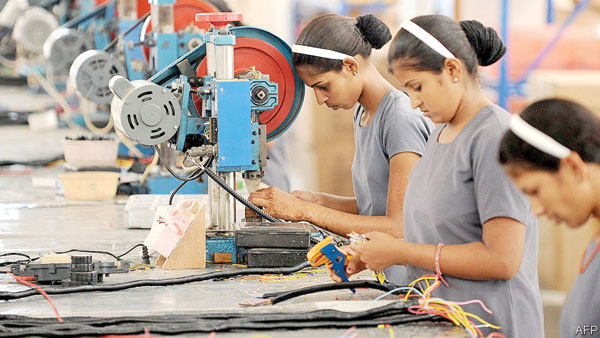K R Sudhaman
MSMEs which formed the backbone of India’s industrial development, exports and job creation, may soon get credit card similar to Kisan credit cards to deal with their credit woes that is presently stunting the economic growth. This follows repeated recommendation of the Parliamentary Standing committee on Finance in a bid to not only ensure credit access but also bring them into a formal financing system. The idea behind this move is to help the small businesses with working capital, trade financing and provide capital loans at affordable rates including necessary guarantees.
There are 6.34 crore MSMEs in the country and nearly 90 per cent of the MSMEs are micro enterprises providing huge employment in the country. The micro industries are mostly under the informal sector, which provides 85 per cent of India’s jobs. The micro industries were largely dependent on cash economy and ever since demonetization in 2016, the informal sector has been cash strapped. They were hit further during the two years of covid pandemic and the recent Russian-Ukraine. Demonetisation did bring about some correction in the real estate, which was badly needed to deal with the emerging asset bubble. But the informal sector got badly hit in the cross fire because they were not digitized and over-depended on cash for the day-to-day activities. MSMEs were largely dependent on informal lending like money lenders, chit funds and lending by local politicians to park their ill-gotten funds and these sources got dried up and the cash crunch became more pronounced.
Even after the launch of Mudra scheme seven years ago and some digitization in the last few years, only 40 per cent of MSMEs borrowed from formal financial system. According to India’s former chief statistician Pronab Sen, MSMEs hardly depend on formal financial system for their financial requirement as access is not all that easy. Because of the personal rapport they establish with money lenders, the lending is immediate even though the cost is much higher.
The proposal is to make the MSMEs sign up for the Udyam portal and automatically obtain Vypar credit card. The Kisan credit card, now in vogue for quite some time, has not only grown year after year but was also popular with farmers getting easy access to formal credit. This has also helped government to target higher lending to farmers year after year as the card system is working well and enables smooth rotation of money by the formal financial system. Digitisation helps in smoothening the system.
BJP leader Jayant Sinha, who himself is an expert on financial matters, heads the Parliamentary standing committee. Son of former finance minister Yashwant Sinha, Jayant is of the view that such a platform will make it possible to provide MSME with an affordable line of credit. Jayant Sinha himself was former minister of state for finance and was looking after banking division under Finance Minister Arun Jaitley before he was shifted to Civil Aviation Ministry.
Under Pradhan Mantri Mudra Yojana, loans are offered up to Rs 10 lakhs to meet the financial requirements of the micro units. There are three types of loan products, Shishu, Kishore and Tarun under this simple financial initiative launched in 2015. Loans are provided to small companies to get their business off the ground and Mudra, a subsidiary of SIDBI, supports intermediaries such as commercial banks, RRBs, small finance banks, MFIs and NBFCs in lending to non-corporate, non-farm small and micro enterprises under this plan. So far nearly 34.5 crore people have benefitted under the scheme, some of whom are micro industries. But this does not provide working capital to Micro industries, which are starved of funds for day to day running and the delay in getting payment from bigger industries, to whom they supply their products. So introduction of Vyapar card will bridge this gap.
This year’s budget too voiced the government’s commitment to provide support to MSMEs facing a lot of financial difficulties during the Pandemic. The government has already said MSMEs can avail themselves of the required credit to deal with pandemic-battered economy by extending the emergency credit line guarantee scheme till March 2023. This provided credit support to additional 2 lakh crore MSMEs.
All these are fine but the main problem for MSMEs today is the cash on hand and COVID has accentuated it and the recent war has magnified it further. The problem now is get their business going after huge losses due to covid lockdown. This requires government bailout which could come in the form of a credit. The Vyapar credit card could be one way of mitigating this problem. This is the right time for government to do some hand holding to MSMEs at a time when the economy is on a revival mode.
MSMEs accounted for 40 per cent of Industrial output and 45 per cent of exports. If this sector is allowed to languish at this juncture, revival would be that much slower. So this proposal is a step in the right direction. The earlier it is implemented the better for the economy. Many MSMEs have struggled to keep their head above water and some closed down temporarily during Covid. It will take some years before they recover their losses. But a positive move like this will help to get them back on their feet and running so that much needed jobs too are created. (IPA)


